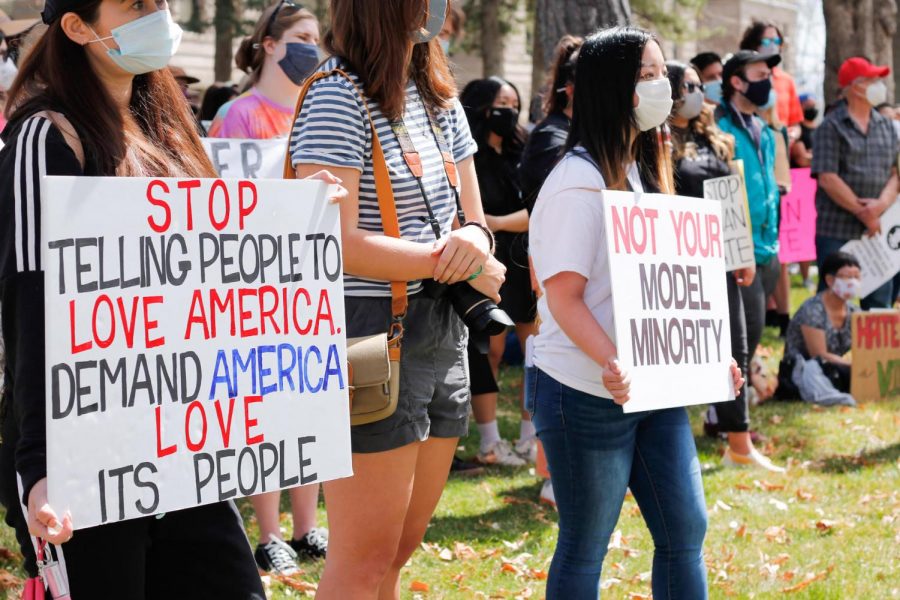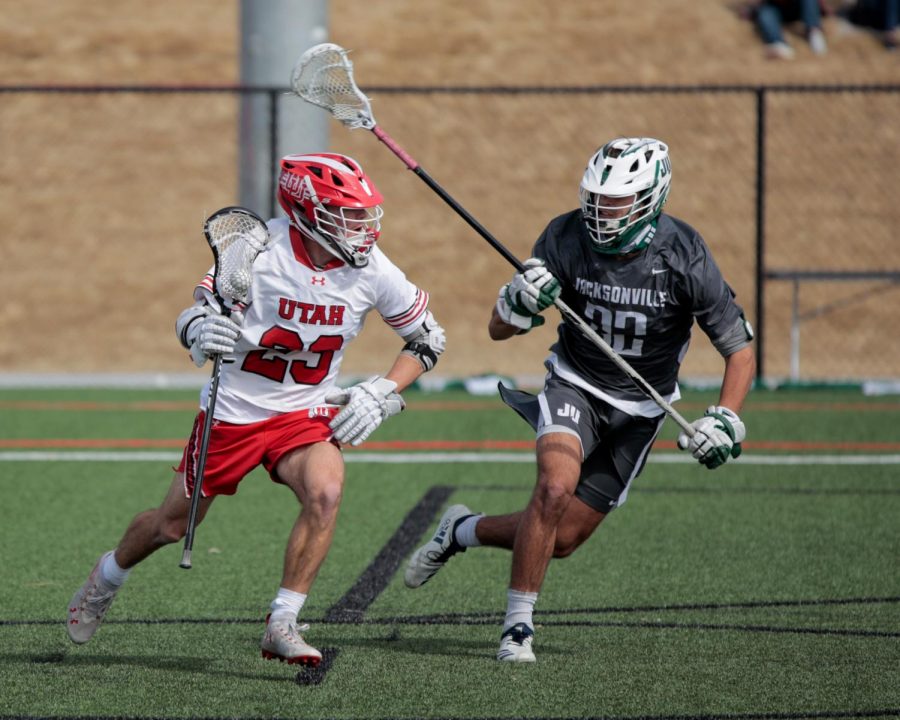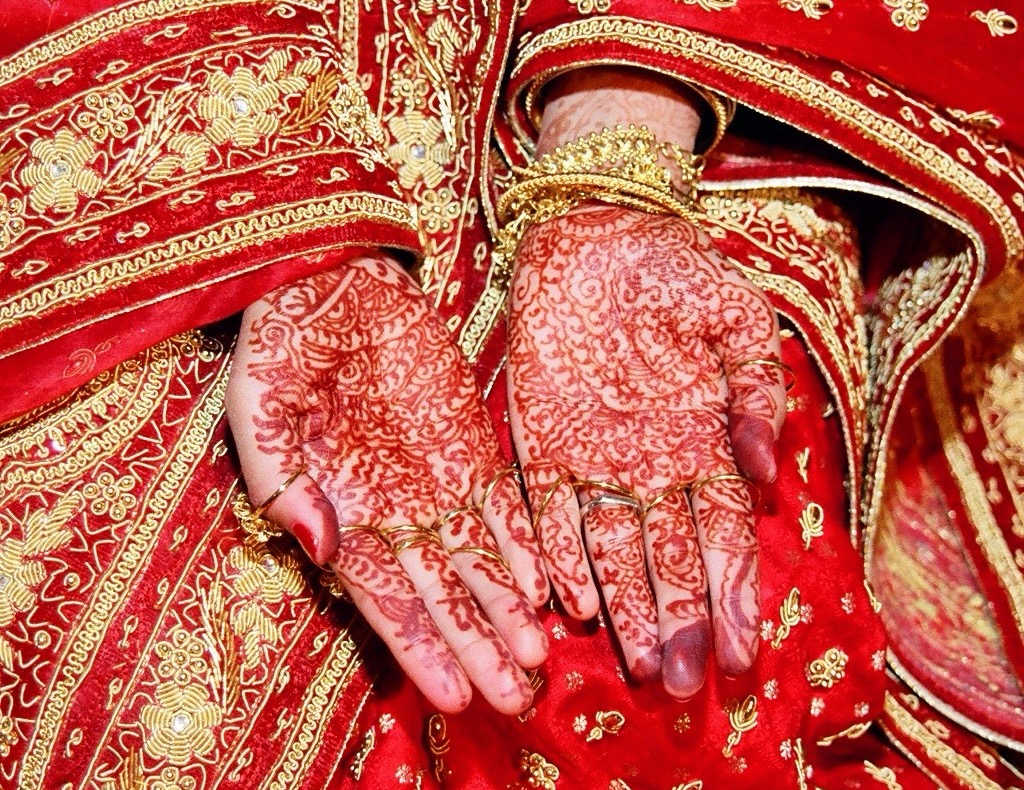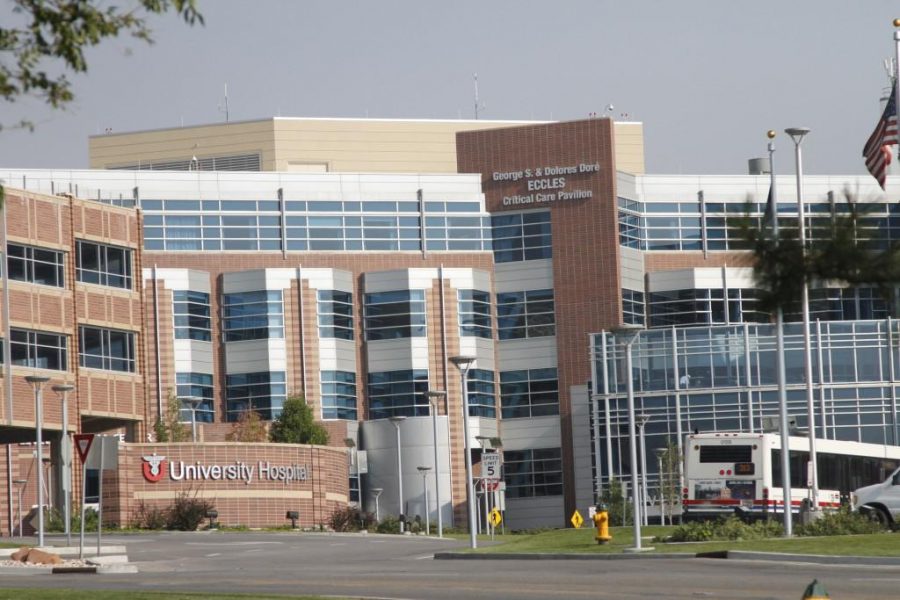‘We’re A Bit Invisible’: Utah Alumni and Professor Speak on Anti-Asian Hate in the US
(Protesters hold signs in support of Asian Americans at Washington Square Park in Salt Lake City on April 3, 2021. (Photo by Natalie Colby | Daily Utah Chronicle)
April 14, 2021
People in the United States have become increasingly aware of anti-Asian hate after the Atlanta spa shootings, where six of the eight victims were Asian women.
Protests have occurred across the nation, raising awareness about the increased violence against Asian communities over the last year.
According to Sara Jones, an alumna from the University of Utah and an Asian American woman, these issues have been recognized in Asian circles long before the coronavirus pandemic or other recent events.
“I think oftentimes people don’t see Asian problems as real problems,” she said. “We are, at times, a bit invisible to people.”
Jones was adopted from Korea by a family in the United States when she was three years old. As an Asian adoptee, she said she has often minimized her experiences.
“We just so easily dismiss the experiences that happened to us and it’s caused a lot of conversations around the ways that Asians are socialized to just accept their situation,” Jones said.
She said oftentimes people come up to her and say hello in whatever Asian language they know.
“I think a lot of people experience that, not just adoptees, so we’ve got to stop treating Asian people as if they are foreign as if they don’t belong here,” she said.
She said education is especially important in Utah because of the way anti-Asian racism has uniquely developed throughout the state’s history. One example Jones mentioned was the 1869 ceremony for the Golden Spike, the last spike of the First Transcontinental Railroad, which connected the East and West parts of the route on Utah soil.
Even though most of the workers who completed the Western part of the railroad were Asian, Jones said they were not pictured in the photos of the celebration.
“Their hard work was not acknowledged and recognized,” Jones said. “There were many, many Asian people that died because of the hard, arduous, dangerous work of building the railroad.”
Annie Isabel Fukushima, an assistant professor in ethnic studies at the U and a Korean-Mexican woman, echoed Jones’ statements about Utah’s unique relationship to anti-Asian racism.
“Utah has a different culture of racism…it might look like more to what we call the ‘bamboo ceiling’ where we don’t see Asian Americans or Asian diasporas making it into leadership roles because there is a racist perception that they’re not seen as leaders,” Fukushima said.
Last semester, Fukushima taught a course in Asian American politics where she analyzed immigration laws such as the 1875 Page Act and 1882 Chinese Exclusion Act, which barred Asian immigrants from entering the U.S.
“We’ve seen a slew of immigration policies in U.S. history that would stop migration from Asia, and the rhetoric in the media that was about how Asians are threatening the society at large and that is an ongoing perception,” she said.
As a Korean American growing up in predominantly white schools, Jones learned the confusing dichotomy between the fetishization of Asian women and simultaneous desexualization of them.
“Asian men also go through this experience as well, in kind of a different form, where because of the lack of role models in movies and books and sports and things like that they’re often emasculated,” she said.
Fukushima said the rise in anti-Asian violence is not composed of isolated incidents, nor is it new.
Although former President Trump referred to the coronavirus as the “Kung flu” and the “Chinese virus,” anti-Asian sentiment has existed in the U.S. long before the pandemic. Fukushima said the model minority myth — which stereotypes Asians as more capable than other minorities of achieving success — rose to prominence in the 80s.
“They would literally on the cover of Time Magazine refer to them as ‘Whiz Kids’,” she said. “So we started to see in the 80s this perception of Asians as successful minorities in particular tech and professional fields.”
The model minority myth further perpetuates racism by both invalidating Asian struggles and portraying Asians as threats.
“What we saw is the reemergence of a different kind of what we call ‘Yellow Peril’ discourse, which is the perception of Asians as threatening to U.S. citizenry and the United States at large,” Fukushima said.
Jones said while she appreciates the many people who have reached out offering their support, she originally did not think she needed it because the model minority myth caused her to dismiss her own pain.
“I think it’s a good moment to re-educate ourselves, that there’s a very complex history and a very complex world that is outside of America,” she said. “It’s actually really fascinating, and so hopefully there’s a good learning opportunity sitting here in front of everyone.”
k.silverstein@dailyutahchronicle.com













